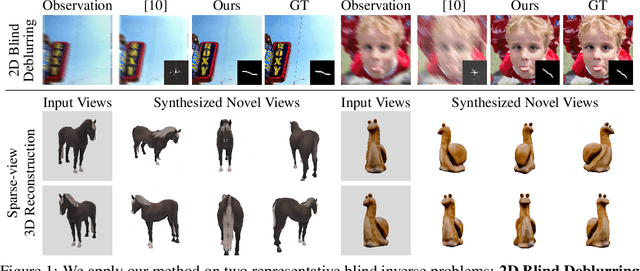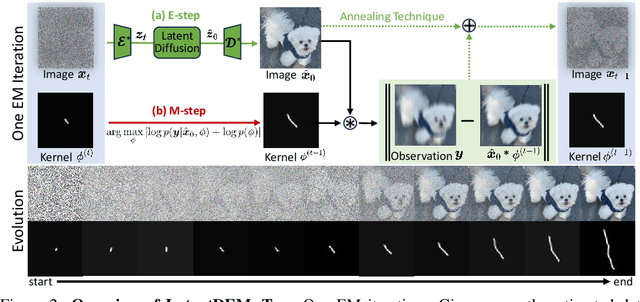Blind Inversion using Latent Diffusion Priors
Paper and Code
Jul 01, 2024



Diffusion models have emerged as powerful tools for solving inverse problems due to their exceptional ability to model complex prior distributions. However, existing methods predominantly assume known forward operators (i.e., non-blind), limiting their applicability in practical settings where acquiring such operators is costly. Additionally, many current approaches rely on pixel-space diffusion models, leaving the potential of more powerful latent diffusion models (LDMs) underexplored. In this paper, we introduce LatentDEM, an innovative technique that addresses more challenging blind inverse problems using latent diffusion priors. At the core of our method is solving blind inverse problems within an iterative Expectation-Maximization (EM) framework: (1) the E-step recovers clean images from corrupted observations using LDM priors and a known forward model, and (2) the M-step estimates the forward operator based on the recovered images. Additionally, we propose two novel optimization techniques tailored for LDM priors and EM frameworks, yielding more accurate and efficient blind inversion results. As a general framework, LatentDEM supports both linear and non-linear inverse problems. Beyond common 2D image restoration tasks, it enables new capabilities in non-linear 3D inverse rendering problems. We validate LatentDEM's performance on representative 2D blind deblurring and 3D sparse-view reconstruction tasks, demonstrating its superior efficacy over prior arts.
 Add to Chrome
Add to Chrome Add to Firefox
Add to Firefox Add to Edge
Add to Edge